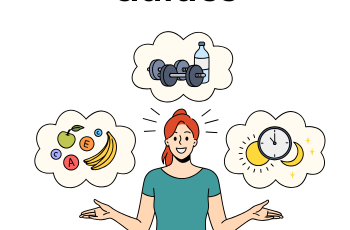While most sweeteners break a fast by triggering insulin or metabolic responses, some may not, depending on your goal for fasting (e.g., weight loss, autophagy, gut rest).
Here’s a quick guide:
Contents
Sweeteners That Typically Do NOT Break a Fast
These have little to no effect on blood glucose or insulin, making them generally safe for fasting focused on fat loss or metabolic health:
| Sweetener | Break a Fast? | Notes |
| Stevia (pure) | No | Natural, zero-calorie, minimal insulin impact. Use pure stevia only. |
| Monk Fruit (Luo Han Guo) | No | Natural, antioxidant-rich, no glucose or insulin response. |
| Erythritol | No | Sugar alcohol, mostly excreted unchanged in urine. Rare insulin response. |
| Allulose | No | Rare natural sugar, does not raise glucose or insulin. Taste similar to sugar. |
These do not appear to impact ketosis or autophagy significantly, but research on autophagy is limited.
Sweeteners That MAY Break a Fast
| Sweetener | Impact |
| Sucralose (Splenda) | May increase insulin in some people, especially with coffee or food. |
| Aspartame | Potential insulin response and gut microbiome disruption. |
| Saccharin | Older artificial sweetener, may affect insulin and gut flora. |
| Xylitol / Maltitol | Sugar alcohols that can spike blood sugar and insulin in some users. |
What Are You Fasting For?
| Fasting Goal | Safe Sweeteners | Avoid |
| Fat loss | Stevia, Monk Fruit, Erythritol, Allulose | Maltitol, Xylitol, high-GI artificial sweeteners |
| Autophagy | Best to avoid all sweeteners (even zero-calorie) to be cautious | |
| Blood sugar control | Stevia, Monk Fruit, Allulose | Anything with glycemic impact |
| Gut rest | Avoid sugar alcohols (can ferment in gut) | Xylitol, Maltitol, Sorbitol |
Final Tip:
Even if a sweetener doesn’t break your fast biochemically, it may increase cravings or stimulate appetite — which can make fasting more difficult.
